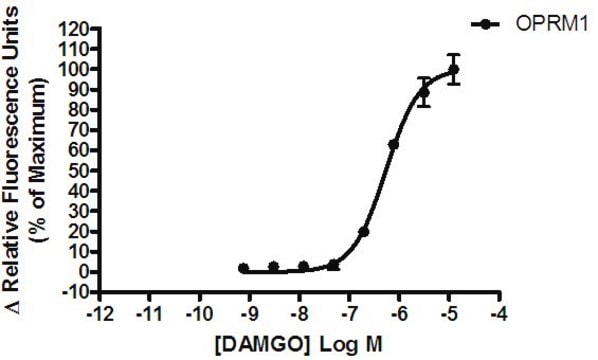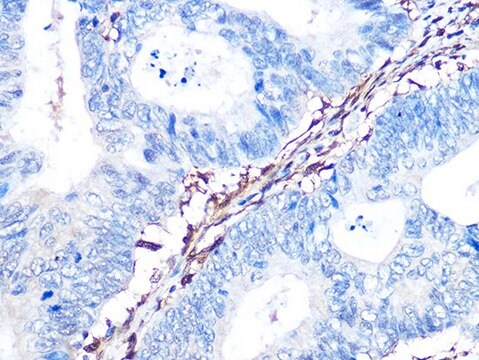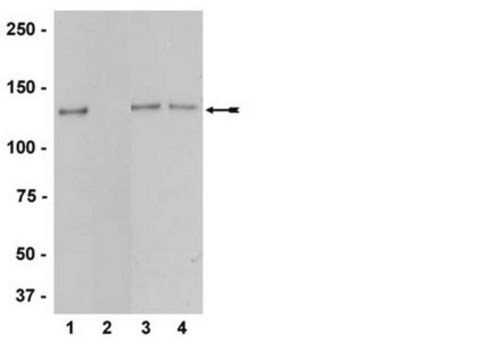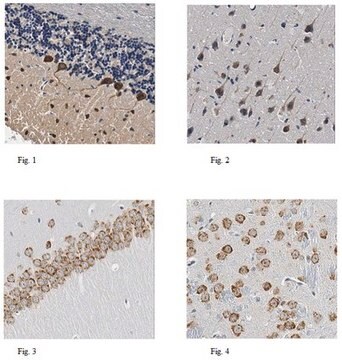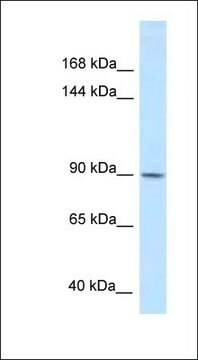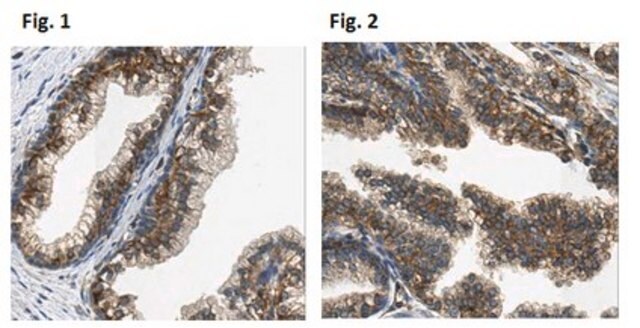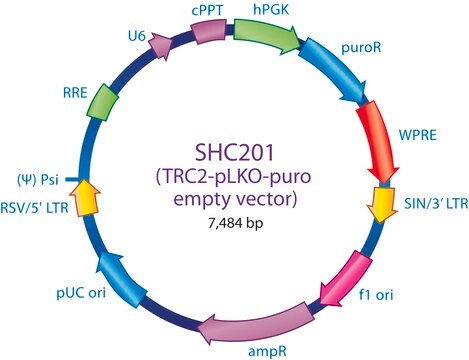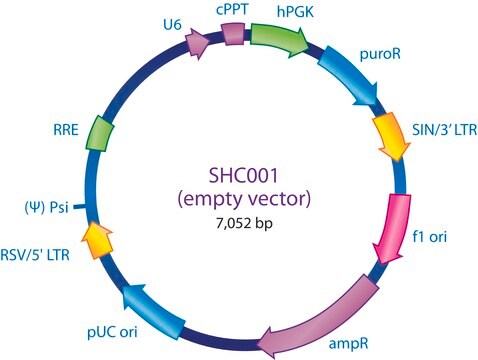HTS100RTA
Ready-to-Assay delta Opioid Receptor Frozen Cells
Human
Faça loginpara ver os preços organizacionais e de contrato
About This Item
Código UNSPSC:
41106514
eCl@ss:
32011203
NACRES:
NA.81
Produtos recomendados
product name
Ready-to-Assay delta Opioid Receptor Frozen Cells, Human Delta / OP1 / DOP / DOR GPCR frozen cells for Calcium Flux FLIPR Assays.
fonte biológica
human
Nível de qualidade
fabricante/nome comercial
Ready-to-Assay
técnica(s)
calcium flux assay: suitable
nº de adesão NCBI
método de detecção
fluorometric
Condições de expedição
dry ice
Descrição geral
Millipore’s Ready-to-Assay GPCR frozen cells are designed for simple, rapid calcium assays with no requirement for intensive cell culturing. Millipore has optimized the freezing conditions to provide cells with high viability and functionality post-thaw. The user simply thaws the cells and resuspends them in media, dispenses cell suspension into assay plates and, following over night recovery, assays for calcium response.
Opiates derived from the opium poppy, Papaver somniferum, have been used in for millenia for their anti-diarrheal, analgesic and euphoric properties. More recently, endogenous peptides, enkephalins, dynorphins, and endorphins, were found to bind to the same sites as opiate alkaloids. The receptors for the classical opioids are three related GPCRs, δ, κ, andμ also known as OP1, OP2 and OP3, respectively), that activate Gi/o to reduce intracellular cAMP levels. Although most clinically used opioids function by activation of the μ opioid receptor, agonist of spinal δ opioid receptors have antinociceptive activity that is independent of μ. In addition, activation of δ increases locomotor activity, inhibits gastrointestinal motility, and decreases respiratory frequency (Dhawan et al., 1996). Agonists for δ opioid receptors also exhibit antidepressant-like activity in animal models (Broom et al., 2002). Millipore’s cloned human δ opioid -expressing cell line is made in the Chem-1 host, which supports high levels of recombinant δ opioid expression on the cell surface and contains high levels of the promiscuous G protein Gα15 to couple the receptor to the calcium signaling pathway. Thus, the cell line is an ideal tool for screening for agonists, antagonists and modulators at δ.
Opiates derived from the opium poppy, Papaver somniferum, have been used in for millenia for their anti-diarrheal, analgesic and euphoric properties. More recently, endogenous peptides, enkephalins, dynorphins, and endorphins, were found to bind to the same sites as opiate alkaloids. The receptors for the classical opioids are three related GPCRs, δ, κ, andμ also known as OP1, OP2 and OP3, respectively), that activate Gi/o to reduce intracellular cAMP levels. Although most clinically used opioids function by activation of the μ opioid receptor, agonist of spinal δ opioid receptors have antinociceptive activity that is independent of μ. In addition, activation of δ increases locomotor activity, inhibits gastrointestinal motility, and decreases respiratory frequency (Dhawan et al., 1996). Agonists for δ opioid receptors also exhibit antidepressant-like activity in animal models (Broom et al., 2002). Millipore’s cloned human δ opioid -expressing cell line is made in the Chem-1 host, which supports high levels of recombinant δ opioid expression on the cell surface and contains high levels of the promiscuous G protein Gα15 to couple the receptor to the calcium signaling pathway. Thus, the cell line is an ideal tool for screening for agonists, antagonists and modulators at δ.
Descrição de linhagem celular
GPCR Cell Lines
Host cells: Chem-1
Ações bioquímicas/fisiológicas
GPCR Class: A
Protein Target: Delta / OP1 / DOP / DOR
Target Sub-Family: Opioid
Componentes
Pack contains 2 vials of mycoplasma-free cells, 1 ml per vial.
Fifty (50) mL of Media Component.
Fifty (50) mL of Media Component.
Outras notas
Limited to a single use and shall not be propagated and/or re-frozen by licensee.
Código de classe de armazenamento
10 - Combustible liquids
Classe de risco de água (WGK)
WGK 1
Ponto de fulgor (°F)
Not applicable
Ponto de fulgor (°C)
Not applicable
Certificados de análise (COA)
Busque Certificados de análise (COA) digitando o Número do Lote do produto. Os números de lote e remessa podem ser encontrados no rótulo de um produto após a palavra “Lot” ou “Batch”.
Já possui este produto?
Encontre a documentação dos produtos que você adquiriu recentemente na biblioteca de documentos.
Nossa equipe de cientistas tem experiência em todas as áreas de pesquisa, incluindo Life Sciences, ciência de materiais, síntese química, cromatografia, química analítica e muitas outras.
Entre em contato com a assistência técnica